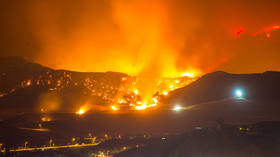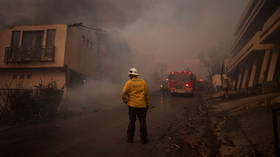Borderlands in Europe’s big game: Moldova, Romania, Bulgaria pulling in different directions
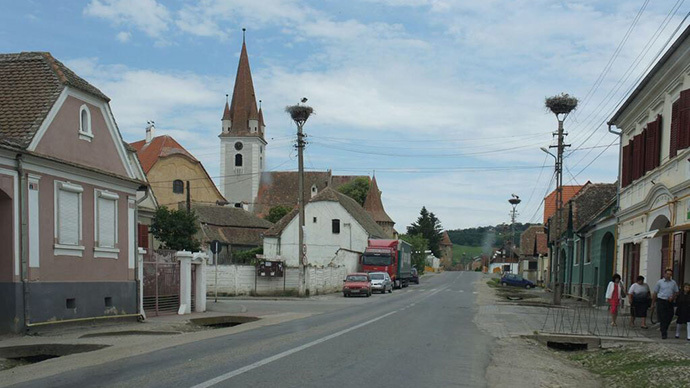
The Ukraine crisis, to all intents and purposes, seems to be cooling off. The next region which could become a flashpoint between Russia and the West is the Black Sea 'Borderlands' region of Eastern Europe.
'Travel broadens the mind' goes the cliché. So it may, but long distance travel also raises the fatigue levels. In a short space of time, I tried to decipher the current condition of Moldova, Romania and Bulgaria. Together with war-torn Ukraine, these nations also ring the Black Sea, along with Turkey, Abkhazia, Georgia and Russia. While Moldova doesn't touch the water, it is only 50km from the pivotal Ukrainian port of Odessa and, thus, takes its place in this region - a strategically vital one.
Moldova
I came to Moldova to figure out which direction the state wanted to go, towards Brussels or back to Moscow’s orbit. Shortly after arriving, I realized that Moldovan’s themselves are actually searching for a nation to belong to first. If the question "are you comfortable in your own skin?" was asked in Chisinau, the answer could easily be "what skin?"
Once a Romanian province, named Bessarabia, logic seemingly dictated that Moldovan’s would feel a strong pull towards their neighbor which speaks an almost identical tongue. However, the reality is massively more complex. After 47 years inside the USSR and 23 as a struggling independent entity, Moldova is being dragged in myriad directions. If it were a horse, it'd be fair to say that Moldova's front legs don't know what the hind hooves are doing.
It’s simplistic to regard the country as a lost Romanian canton or to suggest it should ‘reunite’ with Bucharest. Another non-runner is to consider Moldova a castaway Russian region. The truth is that Moldova has, by an accident of history, become a state but not a state that could be considered a nation. There seems to be no linear idea of what Moldovan statehood actually means. There is nothing approaching a Moldovan national idea, nor any sign of one emerging.
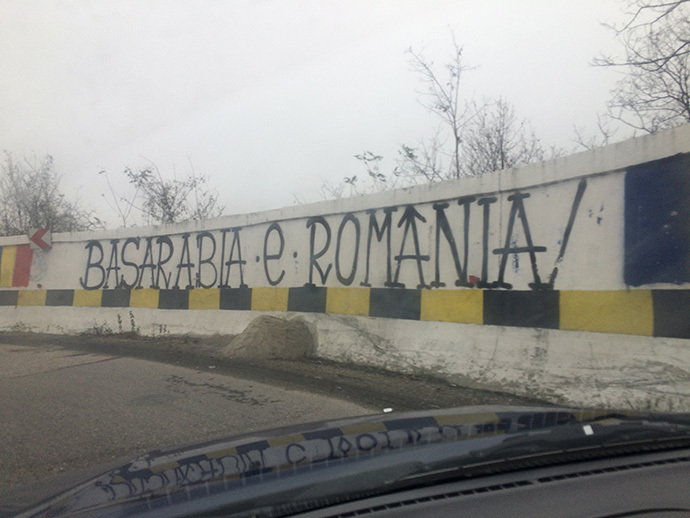
Additionally, the populace is hopelessly divided about which sphere of influence to assimilate into - the EU/NATO orbit or the Russian one. There seems to be no enthusiasm for following a neutral path either and this is where danger lurks.
Parliamentary elections last month only underscored the tug-of-war with the notionally pro-Moscow Party of Socialists emerging as the largest faction. Nevertheless, when all seats are combined, EU accession advocates outscored the eastern-tilted groupings by 55-46.
Sadly, there are shades of Ukraine here. The political balance is on a knife-edge and if similar interference takes place in Chisinau as in Kiev, one shudders to imagine the consequences. Should Brussels try similar ‘us-or-them’ tactics in Moldova, it’ll disenfranchise almost half the country. The hope is that the Eurocrats have learned their lesson. That said, if Brussels were a dog, it'd probably chase after a Toyota Corolla 5 minutes after being injured in a collision with a Camry.
Economically, Moldova is in shards. Only Ukraine’s malaise saves it from the dubious distinction of having the lowest average salaries in Europe. Roads are shattered, the cities are dark at night (presumably due to lack of funds for lighting) and a general lack of optimism prevails. Also, as I mentioned, nobody seems able to quantify a simple Moldovan national idea. Rather than a nation looking for the support of its people, Moldovan’s appear to be people searching for a nation.
Predictably corruption is rife. While there is a feeling of poverty, it’s not quite as catastrophic as official salary and GDP figures would indicate. The only explanation for that is a considerable black economy. The countless high performance cars headed for the Ukrainian port of Odessa only seemed to underscore that conclusion. In unstable places, where there is a port, there're problems - or opportunities for some.
Moldovans seem to be, collectively, in search of something bigger to plant their colors on. The idea of subsuming into Romania appears to be a non-starter, Russia is possibly too far away and the EU has enough problems to be getting on with. My feeling is that Moldova will make news in the coming years, but for all the wrong reasons and that is a very sad thing to have to predict.
Romania
Across the border in Romania, it’s a very different story. Romania is a country that appears to be going places. With a clearly defined identity, it has - on the surface - successfully exploited the opportunities of EU membership. New motorways are under construction and cities are being spruced up.
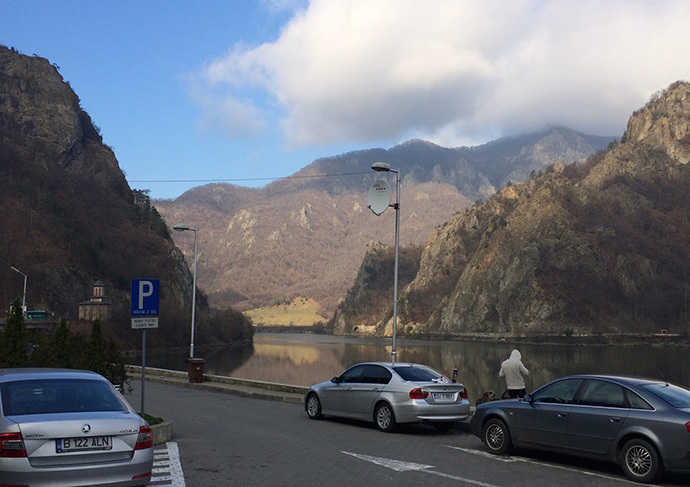
In Bucharest, a building boom is accelerating and a confidence stalks the air. Urban Romanians seem assured that their nation is headed in the right direction and a collective will is apparent.
However, when you venture to the country towns, the complexion changes a bit. One notable feature is the sheer amount of Bookmakers. In one small town, I counted 14 out of 29 main street units devoted to gambling. 5 of the others were fast food outlets and the rest, bar 1 food store, banks. Even in the darkest recesses of northern England, this would be somewhat excessive. It left the lingering perception that while Romania’s cities are modernizing, the country’s heartlands are being left behind.
Bulgaria
In Bulgaria, there’s another narrative entirely. This may be the EU member that time forgot. Varna, it’s supposed tourist pearl, is dirty beyond belief. Aside from a few main roads that give a veneer of normality, the rest are in various stages of disrepair. ‘Mafia wagons’ are conspicuous and, seemingly, only available in black, the same color as their tinted windows. Many of the locals say that the alignment with Brussels has been a disaster as prices continuously rise and wages are fairly static. It is not a happy place.
Others lament Bulgaria’s estrangement from the ‘Russian world’ but accept the distance is too great. Any talk of closer ties with Turkey is shot down instantly. There's too much bad history there.
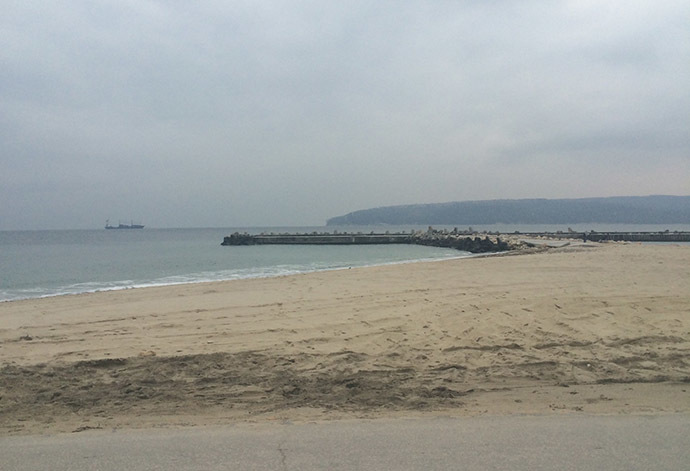
While Moldova is in a state of chassis and Romania is accelerating in an, outwardly, fairly assured direction - Bulgaria is in a torpor. Recent changes are few and an atmosphere of foreboding is general. Bulgaria feels like a nation going nowhere in any kind of hurry.
Pawns in Europe’s games?
The Black Sea borderlands have always played a substantial role in Europe’s ‘great game’ and I have a hunch their status will become a live issue in the near future. All 3 are poor and underdeveloped. Stepping across into Hungary at one end or Turkey at the other, is to walk into another world. The fact that they are so far behind two countries which are not noted for high living standards is alarming in itself.
However, while Romania has some, fragile, surety in its direction, Moldova and Bulgaria do not. Citizens of the latter know they don’t wish to deepen ties with Turkey. They are confused about whether the EU is a good thing and, outside of Sofia, notice little by way of progress. Bulgarians lament the erosion of ties with Russia but are realistic enough to realize the fact of that ship having sailed for now.
In Moldova, the current status quo feels inherently unstable. US/EU NGO’s are visible all around (interfering or helping, depending on your view) but there’s a lack of a consensus on whether their presence is a good or bad thing.
Many Moldovans fear that estrangement from Moscow will completely cut off access to the Russian labour market. As with Ukraine, it's barely acknowledged in Europe that this safety valve has sustained both countries with remittances for years. The Eurocentric media talk of mass migration around the EU but never let it slip to their readers that Russia is another - often even more so - favored destination of many of Eastern Europe's emigrants. If the Kremlin closes this option, the effects on Moldova - and Ukraine - would be horrendous. With the Russian economy in trouble, it's not a crazy notion either.
I visited Turkey, Georgia and the youthful country of Abkhazia next. In those - very different - places another, more generally optimistic mood prevailed. However, the feeling that the western side of the Black Sea is a powder keg didn't evaporate. Watch it closely.
The statements, views and opinions expressed in this column are solely those of the author and do not necessarily represent those of RT.
The statements, views and opinions expressed in this column are solely those of the author and do not necessarily represent those of RT.





